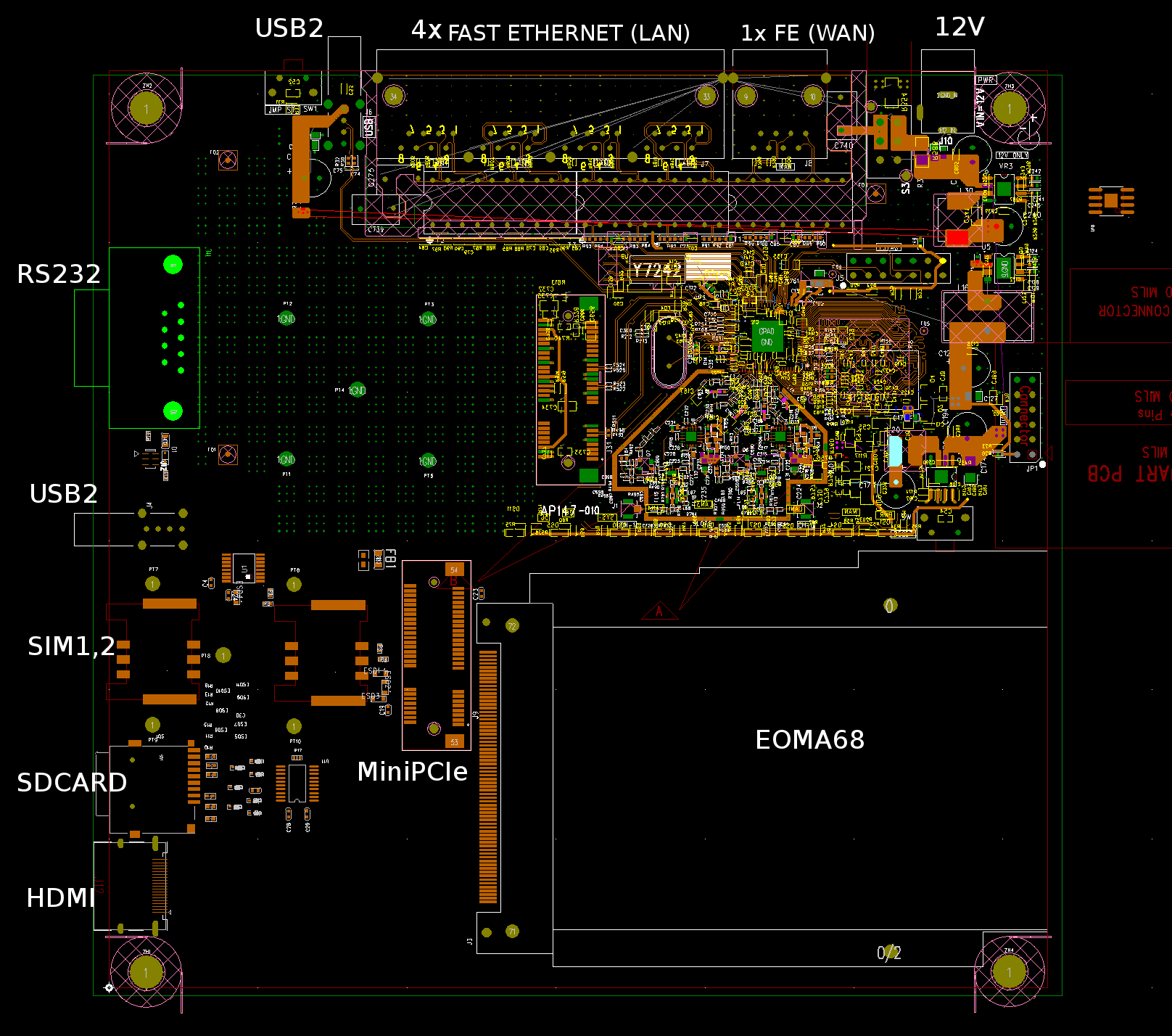06 May 2017: New design of Router started
The first design of Router was back when EOMA68 had GbE. A decision was taken to remove that, in favour of USB3, which meant that the original Router design had to be re-thought. This design will use a QCA9531 which is an entirely libre-compliance MIPS-based SoC with 2x2 802.11n 2.4ghz WIFI, PCI Express, USB2 and a 5-port Fast Ethernet PHY.
Connectivity to EOMA68 will be handled by an AP2720 USB-to-USB (usbnet) host IC which will appear to both the QCA9531 and EOMA68 as a USB Ethernet device. Also included will be a second (USB-based) MiniPCIe holder where a 3G/4G/LTE USB-based modem can be attached. There will be two SIM card slots so that it is possible to, for example, use one of Telit's world-wide high-availability SIM Cards for telemetry, but if large firmware updates or other high-bandwidth but non-emergency connectivity is required, the second SIM may be utilised with a more "standard" contract.
An HDMI connection is also to be included (with a TFP410A to convert from RGB/TTL to HDMI) as well as a USB2 port to the EOMA68 Card, as well as a 9-pin RS232 port. This will allow KVM access and remote access to the main EOMA68 Card's OS.
Also: the QCA9531 will have the ability to power-cycle the EOMA68 Card, and likewise the EOMA68 Card will have the ability to power-cycle the QCA9531. Through software-level monitoring each device will have the capability to reboot the other. In addition, the EOMA68 SPI interface will be wired through a multiplexer to the QCA9531's SPI NOR Flash. The combination of power-management and control over the SPI NOR will allow a EOMA68 Card to easily re-flash the QCA9531 Operating System, should it become corrupted (unfortunately, the arrangement may not be reciprocated).
Overall this is quite a powerful combination of technology: 5-port Fast Ethernet, 2x2 802.11n 2.4ghz WIFI, MiniPCIe (full MiniPCIe so that 802.11ac or 5.4ghz MiniPCIe Cards may be slotted in), 3G / 4G / LTE or other USB-based MiniPCIe modem and more. VPN encryption may be handled by the EOMA68 Card, which will have a much faster processor than the QCA9531, whilst the QCA9531 itself can remain dedicated to traffic routing and management.
